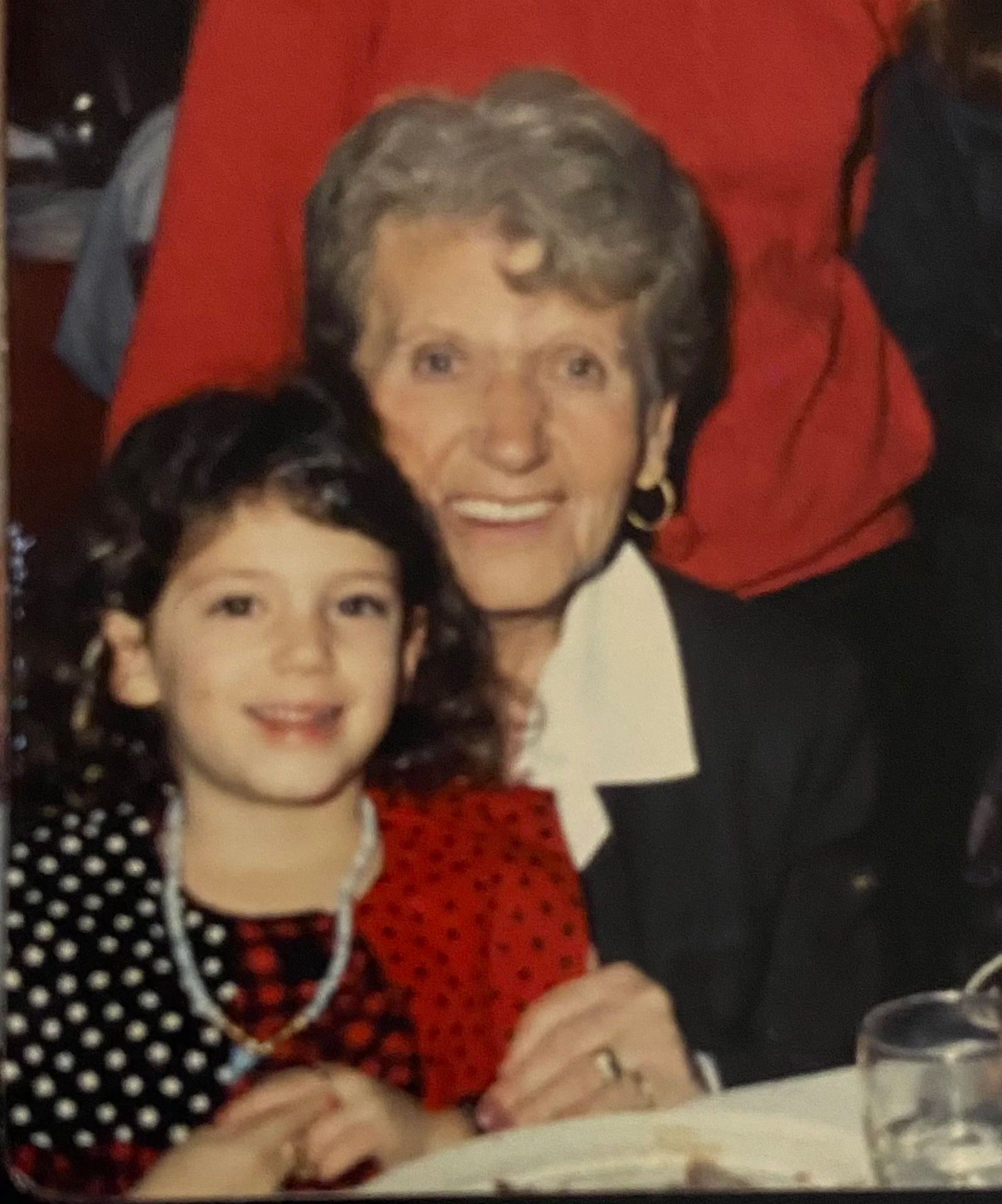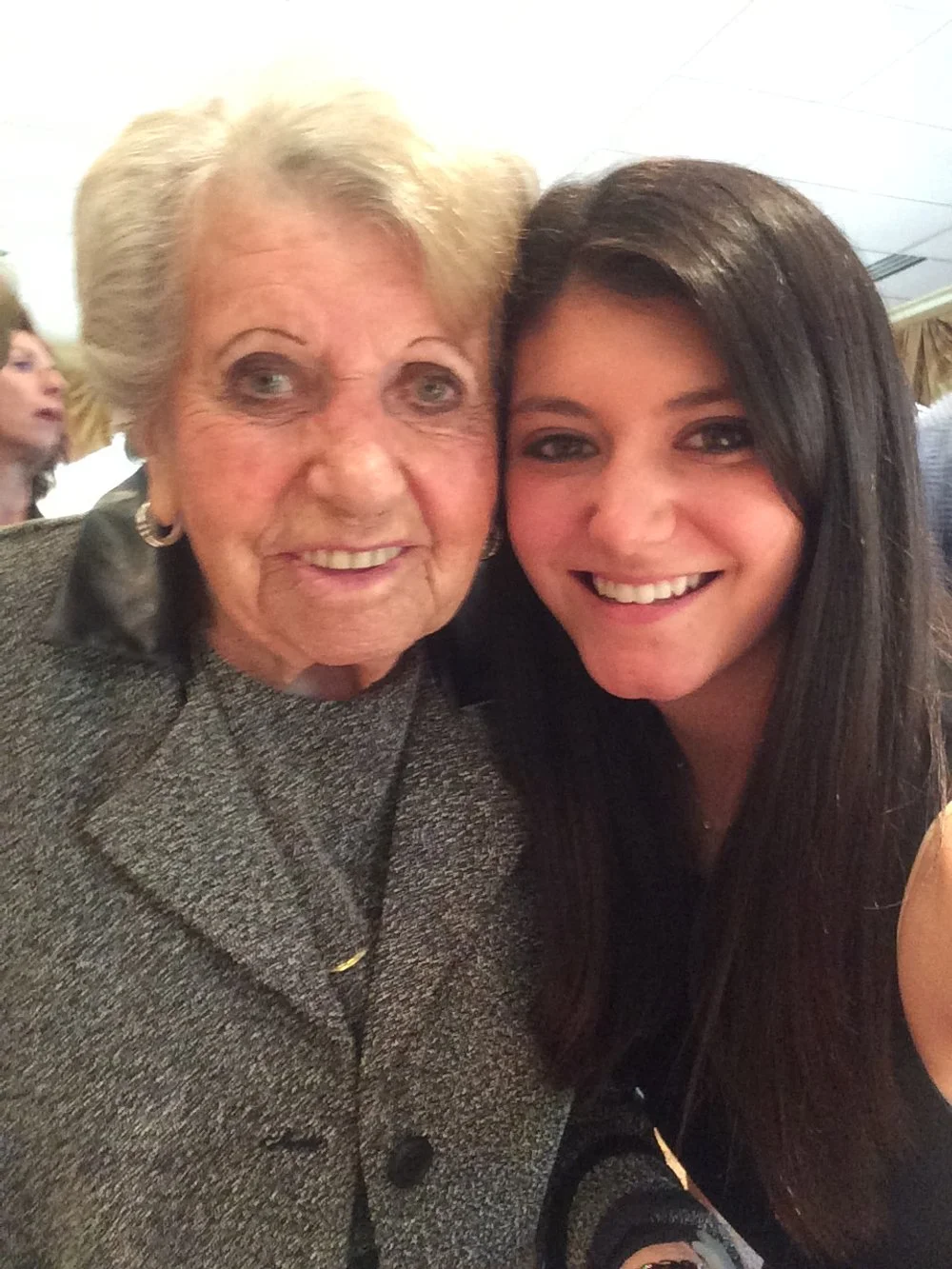I Was 27 When My Grandmother Passed Away. I Decided Then That I Would Carry Her Story With Me Until I Was 100.
By Alison Berg Reynolds,
3GNY Board Member & Speaker,
Living Links Speaker Training Program Facilitator
I am the granddaughter of two Holocaust survivors, Anna and Eugene Greenwood, and kin to an improbable posse of strong, resilient relatives who survived. This includes my great-aunt Masha, my grandmother’s sister.
It’s hard to describe the incredible impact being a 3G has on my life. It has defined how I think about my place in the world, and my responsibility to repair it. Being a 3G has helped me understand the true threat of hatred, and the even bigger danger in complicity. It is a reminder of my capacity for strength and resilience, but also my obligation to lead with kindness and curiosity. For a long time I carried guilt for the ease of life I lead compared to the horrors experienced just two generations before me.
Ultimately I decided guilt does not create justice– it does not take away from my grandparents’ pain and it doesn’t add to their legacy. So I channeled that negative energy into creating positive change in the world I live in today.
My grandma and her sister were born in Hungary. It was their fellow Hungarians who ripped their mother from the backyard garden and imprisoned them in a ghetto. They were shipped to Auschwitz and then Sachsenhausen, where they performed slave labor on an assembly line for a Nazi airplane factory. My grandmother told me she switched the wiring of the engine parts to sabotage the planes. They were put on a death march but liberated by the Russians. They survived together, but only to find their homes stolen and most of their family murdered. Eventually my grandmother moved to the United States, and Masha later joined her.
My grandmother was 27 when she was taken from her home, and she carried her story through her 100th year of life. I was 27 when she passed away, and I decided then that I would carry her story to the time I am 100.
It was at her shiva that I sat down with my great-aunt, Masha, and asked to hear the full story. Masha was able to fill in the blanks I still had from what my grandmother shared with me herself over her lifetime. I joined 3GNY and became a speaker a few months later.
Grandma Anna
My family was immensely proud — maybe even relieved — when I started this work. It was reassurance that our family history would live on, not only through us as descendents but also through every student who would hear the story. I always told Masha when I was speaking in schools, and how students responded. I made sure she knew exactly how the most harrowing parts of her past were being used to create a better future.
In my grandmother’s story, there’s a Nazi officer in the airplane factory who sneaks an apple to Masha as a sweet treat. There’s another officer in the factory who forces my grandmother to beat a fellow prisoner with a pipe. In discussions afterwards I like to say you can choose to be the person who gave the apple, or the person who gave the pipe. These were two men in the same place, same time, same circumstance who made VERY different decisions, and both had profound impact on my grandmother and Masha.
Small actions save lives. It is easy to feel paralyzed by the world around us, and the role we play in a big, complicated world. As a peer facilitator training other 3Gs to tell their stories, I’ve heard dozens of stories, and there is always some small action that saves a life. Maybe not directly, maybe the person didn’t even think it was a big deal or life saving situation at the time, maybe it just provided hope, but it changed the course of a life.
My grandmother taught me that only your values define you. You can be a different age, race, gender, religion from others, but your values are what make you most similar or different from others. My grandmother would judge people only by their values — she would say someone was “our kind of people” and she didn’t mean Jewish. She meant a mensch. Someone with values like ours — family, hard work, kindness, and strength. And it is not enough to hold those values, but to live them, and stand up to them when challenged.
I am always pleased when students who don’t look like me come up and want to tell me about their family, their story, and how they relate to mine. It’s the Black and brown students who see themselves and their communities in these stories. They can understand the lessons beyond the Jewish people and apply them to racism and prejudice in all its insidious forms. This gives me hope that students will not just be able to identify antisemitism and bigotry when it mirrors the Holocaust — with violent mass arrests and concentration camps — but when it occurs on their streets, in their schools, on their playgrounds. And hopefully, if they can identify it and connect it with history, they will stand up against it early and often.
Speaking in schools over the last 6 years has made me hopeful that there isn’t actually as much hatred as we may think– but there is plenty of fear, anger, and ignorance. Our speaking program is absolutely a first step in opening conversations to begin to dissolve it.
In Loving Memory, A Tribute to Masha



